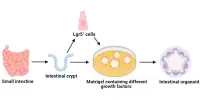A fundamental component of the severe allergic reaction known as anaphylaxis is a sudden drop in blood pressure and body temperature, causing people to faint and, if ignored, potentially dying. That response has traditionally been related to a rapid dilatation and leaking of blood vessels. However, in a mouse study, Duke Health researchers discovered that this reaction, particularly body temperature decline, required an extra mechanism – the nervous system.
The discovery, published online in the journal Science Immunology, could indicate to new targets for medicines to prevent or cure anaphylactic shock, which happens in up to 5% of people in the United States each year as a result of food allergies or stings from insects or poisonous animals.
“This finding, for the first time, identifies the nervous system as a key player in the anaphylactic response,” said senior author, Ph.D., professor of Pathology, Immunology, Molecular Genetics and Microbiology at Duke University School of Medicine.
This finding, for the first time, identifies the nervous system as a key player in the anaphylactic response. During anaphylaxis, the sensory nerves involved in thermal regulation, particularly the nerves that sense high environmental temperatures, send the brain a false signal that the body is exposed to high temperatures, which is not the case. This causes a rapid drop in body temperature as well as blood pressure.
Soman Abraham
“During anaphylaxis, the sensory nerves involved in thermal regulation, particularly the nerves that sense high environmental temperatures, send the brain a false signal that the body is exposed to high temperatures, which is not the case,” Abraham explained. “This causes a rapid drop in body temperature as well as blood pressure.”
Abraham and colleagues, including first author Chunjing “Evangeline” Bao, a Ph.D. candidate in Abraham’s lab at Duke, studied the sequence of events that occur when allergens activate mast cells – the immune cells that cause swelling, difficulty breathing, itchiness, low blood pressure, and hypothermia.

The researchers discovered that one of the substances released by mast cells when triggered is an enzyme that interacts with sensory neurons, particularly those in the body’s thermoregulatory neural network.
When this neuronal network is triggered as part of an allergic reaction, it receives the signal to instantly shut down the body’s heat generators in the brown fat tissue, resulting in hypothermia. When this network is activated, blood pressure drops dramatically.
The researchers corroborated their findings by demonstrating that deprivation of a specific mast cell enzyme protected mice from hypothermia, but directly activating heat-detecting neurons in mice caused anaphylactic symptoms such as hypothermia and hypotension.
“By demonstrating that the nervous system is a key player – not just immune cells – we now have potential targets for prevention or therapy,” Bao added. “This finding could be important for other conditions, such as septic shock, and we are conducting additional research.”
















